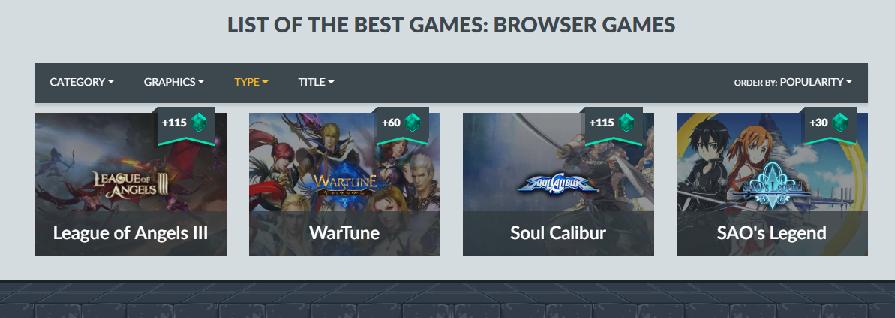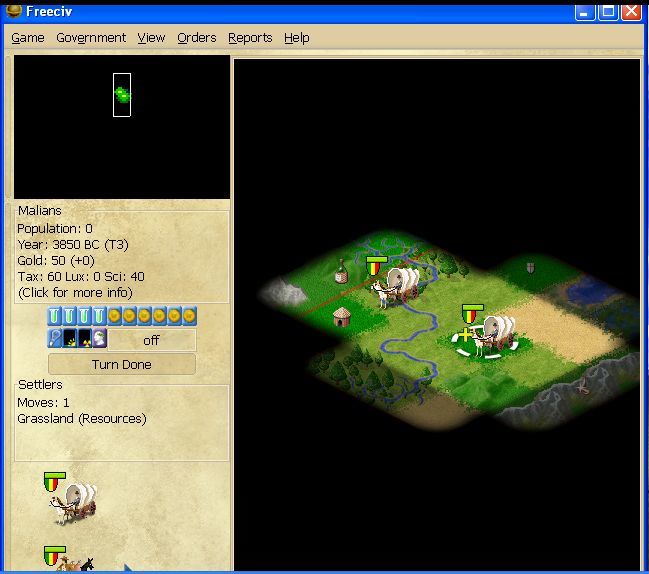
* Map topology (rectangular or hexagonal tiling whether it wraps horizontally and/or vertically) * How continents and islands are generated and distributed over the map * How close cities can be built to one another * Whether (computer controlled) barbarians should invade player settlements * Whether there should be computer controlled players * Number of players required before the game can be started One or several players act as game administrators and can configure the game rules. "Freeciv" is very configurable, down to the specific rules, so it can be played in "Freeciv" (default) mode, "Civilization", " Civilization II", or in a custom mode. Points are awarded for the size of a civilization, its wealth, and cultural and scientific advances. If more than one civilization remains at the deadline, the player with the highest score wins.

The game ends when one civilization has eradicated all others, accomplished the goal of space colonization, or at a certain deadline. Players can wage war on one another or form diplomatic relationships. Over time, new technologies are discovered, which allow the construction of new city buildings and the deployment of new units. Players take the role of a tribe leader in 4000 BC and have to guide their people through the centuries.
FREECIV BROWSER FREE
Released under the GNU General Public License, "Freeciv" is free software. "Freeciv" is available for most desktop Linux distributions. The game's default settings are closest to " Civilization II", both in gameplay and graphics (including the units and the isometric grid). The latest stable version of "Freeciv" is 2.1.6, released on August 11, 2008. "Freeciv" is a multiplayer, turn-based strategy game for workstations and personal computers inspired by the commercial proprietary " Sid Meier's Civilization" series.


Caption = "Freeciv" 2.1.0-beta3, with the SDL client


 0 kommentar(er)
0 kommentar(er)
